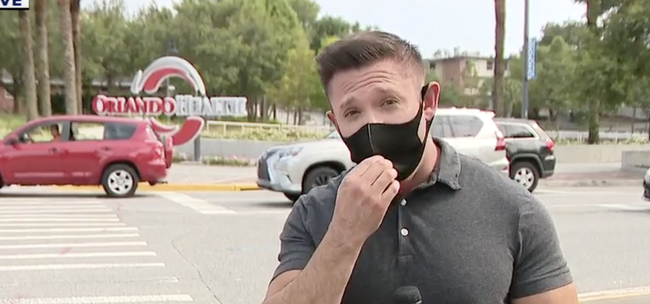 |
On the menu today: unraveling those ominous claims that people can get reinfected with the coronavirus merely weeks or months after they think they’ve beaten it; the governor of Mississippi explains why he doesn’t think “herd immunity” is a realistic option, while some New York neighborhoods offer some eye-popping figures suggesting it may not be that far away; and the media praise the wrong Democratic governors.
What You Need to Know about Reinfection and Your Immune System
Yesterday brought two stories that seemed like just about the worst news we could get in this pandemic. First, the Guardian over in the U.K. reported on a study by King’s College London suggesting that after infection, coronavirus patients could lose their built-in immunity to reinfection fairly quickly:
Blood tests revealed that while 60 percent of people marshalled a “potent” antibody response at the height of their battle with the virus, only 17 percent retained the same potency three months later. Antibody levels fell as much as 23-fold over the period. In some cases, they became undetectable.
“People are producing a reasonable antibody response to the virus, but it’s waning over a short period of time and depending on how high your peak is, that determines how long the antibodies are staying around,” said Dr Katie Doores, lead author on the study at King’s College London.
Then, over in Vox, D. Clay Ackerly, an internal medicine and primary-care physician practicing in Washington, D.C., described a 50-year-old patient who tested positive, suffered the effects, tested negative twice, then tested positive again with more severe symptoms a second time, about six weeks later:
It is possible, but unlikely, that my patient had a single infection that lasted three months. Some Covid-19 patients (now dubbed “long haulers”) do appear to suffer persistent infections and symptoms.
I believe it is far more likely that my patient fully recovered from his first infection, then caught Covid-19 a second time after being exposed to a young adult family member with the virus. He was unable to get an antibody test after his first infection, so we do not know whether his immune system mounted an effective antibody response or not.
We’ve had these worries earlier this year. Back in early April, South Korean doctors initially believed they were seeing people get sick a second time from “reactivation” of the virus. The Korean CDC initially characterized these cases as “reactivation” of the virus, not reinfection, believing the body fights off the virus for a while, at a sufficient level to make the virus seem dormant, and then the immune system stops fighting it as effectively, causing a second flare-up.Read the rest of the story HERE and follow links below to related stories and resources:
Florida Labs Acknowledge "Major Errors" After Reporting Positivity Rates Of 100%
UDA TODAY: Coronavirus Updates
WSJ: Coronavirus Live Updates
YAHOO NEWS: Coronavirus Lives Updates
NEW YORK POST: Coronavirus The Latest
If you like what you see, please "Like" us on Facebook either here or here. Please follow us on Twitter here.


No comments:
Post a Comment